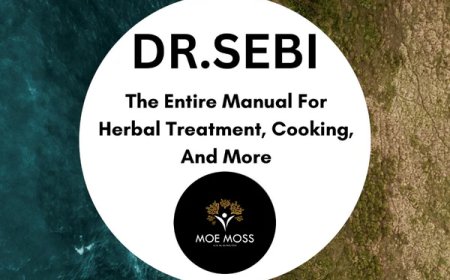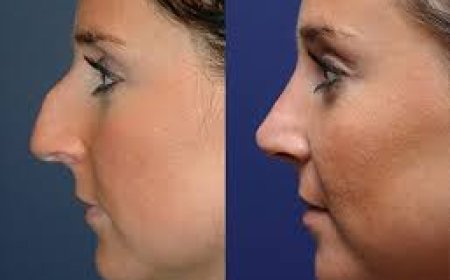Say Goodbye to Stiffness with Proven Neck Pain Treatment Solutions
Say goodbye to stiffness with proven neck pain treatment solutions. Explore physical therapy, chiropractic care, massage, acupuncture, and more for lasting relief.

Neck stiffness and discomfort are among the most common complaints in modern life. Whether it's caused by poor posture, long hours at a desk, injury, or stress, neck pain can interfere with everything from sleeping comfortably to turning your head while driving. Fortunately, with the right neck pain treatmentyou can say goodbye to stiffness and regain the comfort and mobility you need to enjoy life to the fullest.
If you're tired of dealing with chronic tension, aching muscles, or reduced range of motion, now is the time to explore effective treatment options. In this guide, well explore the causes of neck stiffness, the most effective therapeutic approaches, and simple changes you can make to support long-term recovery.
Understanding Neck Pain and Stiffness
The neck, or cervical spine, is a complex structure made up of bones, muscles, ligaments, and nerves. It supports the head and allows for motion, but it's also vulnerable to injury and strain. Stiffness in the neck often results from inflammation, muscle tightness, or irritation of spinal components.
Common causes of neck stiffness include:
-
Poor posture Especially from slouching or looking down at phones
-
Muscle strain Often from overuse or sudden movements
-
Whiplash injuries Common after car accidents or falls
-
Osteoarthritis Age-related wear and tear on spinal joints
-
Herniated discs Discs pressing on nearby nerves
-
Stress and anxiety Which can cause muscle tension
Identifying the cause of your stiffness is the first step in determining the right neck pain treatment plan.
When to Seek
Neck Pain Treatment
Occasional neck tightness may resolve on its own, but persistent or worsening pain shouldnt be ignored. You should consult a healthcare provider if:
-
The pain lasts longer than a week
-
It radiates to your arms or shoulders
-
You have numbness, tingling, or weakness
-
The stiffness limits your daily activities
-
Over-the-counter medications are ineffective
A professional evaluation can uncover the root cause and recommend personalized solutions for lasting relief.
Top Proven Neck Pain Treatment Solutions
Effective neck pain treatment is often multi-faceted, combining various approaches based on the underlying cause. Here are the top medically recommended and proven options:
1.Physical Therapy
Physical therapy is a cornerstone of neck pain recovery. A trained physical therapist can guide you through targeted exercises to improve strength, flexibility, and posture.
Benefits of physical therapy:
-
Increases range of motion
-
Strengthens neck and shoulder muscles
-
Corrects postural imbalances
-
Reduces inflammation and stiffness
Many patients see significant improvement in just a few weeks of consistent therapy.
2.Chiropractic Care
Chiropractic adjustments involve manual manipulation of the spine to improve alignment and relieve nerve pressure. For many people, this hands-on technique provides quick relief from neck stiffness and pain.
Why chiropractic care works:
-
Realigns vertebrae
-
Eases muscle tension
-
Improves blood circulation to the neck
-
Enhances nervous system function
Always consult a licensed chiropractor experienced in neck pain treatment.
3.Massage Therapy
Tense muscles are a major contributor to neck stiffness. Therapeutic massage helps reduce muscle tightness, improve circulation, and promote relaxation.
Types of massage for neck pain:
-
Deep tissue massage
-
Trigger point therapy
-
Myofascial release
Massage therapy can be used alone or in conjunction with other treatments for optimal results.
4.Acupuncture
Acupuncture, a traditional Chinese medicine technique, uses fine needles to stimulate specific points on the body. It is believed to release natural pain-relieving chemicals and improve energy flow.
Benefits for neck pain:
-
Decreases inflammation
-
Promotes endorphin release
-
Relieves muscle tension
-
Improves range of motion
Acupuncture is safe, effective, and increasingly used alongside conventional neck pain treatment methods.
5.Heat and Cold Therapy
Simple and effective, applying heat or ice to the neck can reduce inflammation, increase blood flow, and relieve stiffness.
When to use each:
-
Use ice in the first 2448 hours of injury to reduce swelling
-
Use heat afterward to relax tight muscles and improve circulation
Moist heat from warm towels or heating pads works well for chronic tension.
6.Pain-Relieving Medications
For more severe discomfort, over-the-counter or prescription medications can provide relief.
Options include:
-
Nonsteroidal anti-inflammatory drugs (NSAIDs)
-
Muscle relaxants
-
Topical pain relievers
-
Corticosteroid injections (for inflammation and nerve pain)
Medication can reduce pain enough to make physical therapy more tolerable and effective.
7.Posture Correction and Ergonomic Adjustments
Long hours at a desk, improper screen positioning, or sleeping on the wrong pillow can contribute to chronic neck stiffness.
Simple changes that help:
-
Keep screens at eye level
-
Use chairs with proper neck and back support
-
Sleep with a supportive cervical pillow
-
Avoid cradling the phone between your neck and shoulder
-
Take frequent breaks during long periods of sitting
Correcting posture is one of the most sustainable forms of neck pain treatment.
8.Neck Braces or Support Devices (Short-Term Use)
Soft cervical collars can temporarily support the neck after injuries or surgery. They limit motion, allowing healing and reducing strain.
Note: Prolonged use is not advised, as it may weaken muscles. Always use under the guidance of a healthcare provider.
Long-Term Strategies for Neck Health
While immediate neck pain treatment is important, preventing future stiffness is equally critical. Here are some lifestyle tips that support ongoing neck health:
Stay Active
Regular exercise promotes flexibility and strength. Include neck-friendly movements like yoga, swimming, and gentle stretching in your routine.
Manage Stress
Chronic stress can cause muscle tension in the shoulders and neck. Relaxation techniques like meditation, deep breathing, and mindfulness can help.
Hydrate and Eat Well
Hydration helps maintain spinal disc health, while anti-inflammatory foods can reduce joint and tissue inflammation.
Avoid Overuse
Limit repetitive motions that strain the neck, such as looking down at your phone. Use voice-to-text features and adjust screen positions when necessary.
When Surgery Is Needed
Although rare, some cases of neck pain require surgical interventionespecially when symptoms involve nerve compression or structural damage.
Common procedures include:
-
Cervical discectomy and fusion (ACDF)
-
Artificial disc replacement
-
Cervical laminectomy
Surgery is typically reserved for those who dont respond to conservative neck pain treatment after several months.
Choosing the Right Healthcare Provider
Selecting the right provider is key to successful recovery. Whether you choose a physical therapist, chiropractor, or orthopedic specialist, look for:
-
Experience with neck-specific treatments
-
Good patient reviews and success stories
-
Clear communication and individualized care plans
-
Willingness to collaborate with other specialists if needed
Dont hesitate to get a second opinion if your symptoms persist.
Final Thoughts
Neck stiffness may be common, but it doesnt have to be permanent. With the wide range of neck pain treatment options available today, you can find relief, restore mobility, and improve your quality of life. From physical therapy and chiropractic care to acupuncture and ergonomic changes, there are safe, effective ways to address the root cause of your discomfort.
Say goodbye to chronic stiffnessstart your journey to recovery with proven solutions tailored to your needs. Consult a qualified healthcare provider today and take the first step toward a healthier, pain-free neck.








































